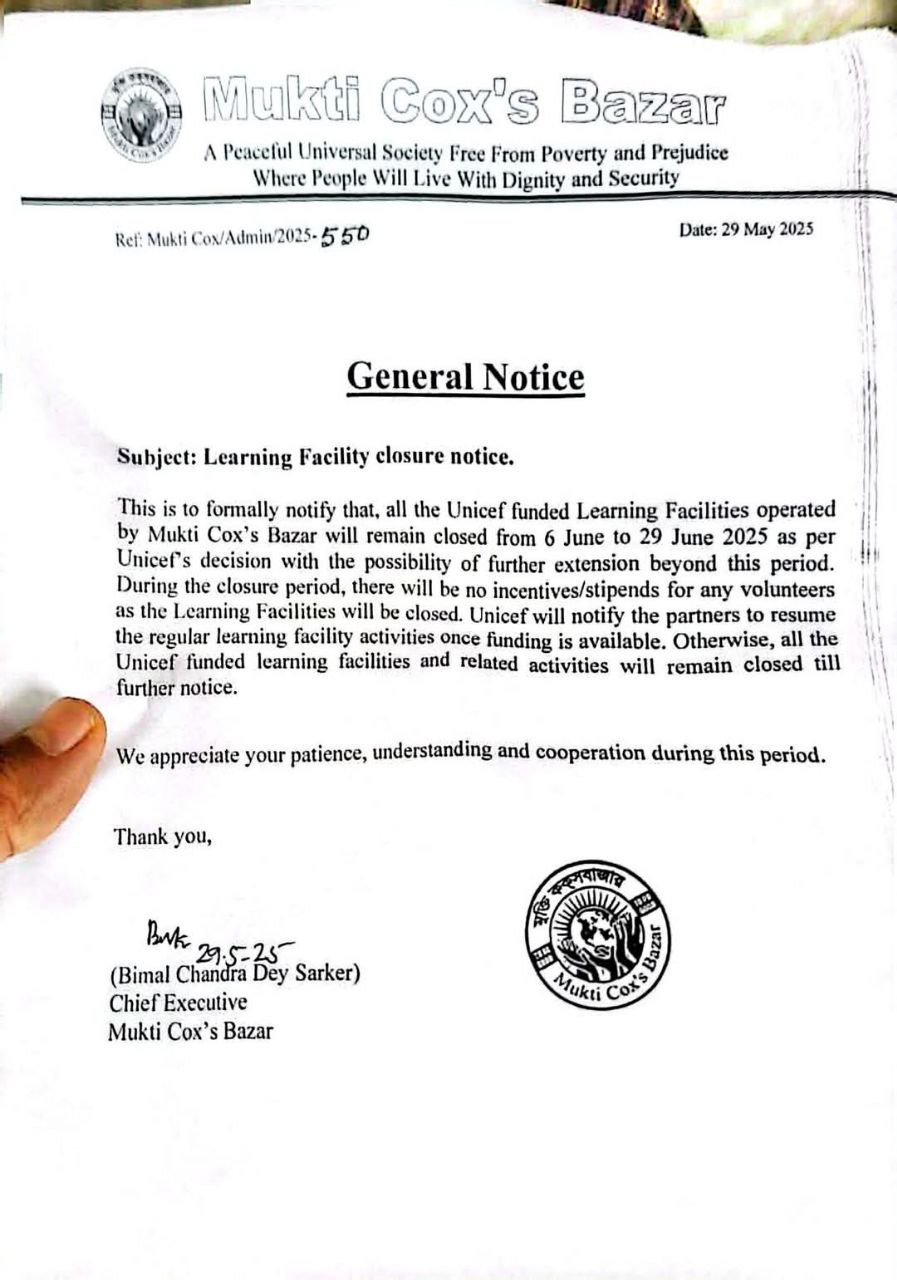Border News Agency
Cox’s Bazar, June 1, 2025
UNICEF has announced the suspension of major segments of its education program for both Rohingya refugees and Bangladeshi host communities in Cox’s Bazar, citing a severe global funding shortage. The decision, effective from June 6, 2025, will disrupt learning opportunities for hundreds of thousands of children and result in the termination of over 1,179 volunteer educators.
According to an internal letter issued by UNICEF on May 27 to six implementing partners BRAC, Coast Foundation, CODEC, Friendship, JCF, and Mukti Cox’s Bazar all contracts with host community volunteer teachers from Kindergarten to Grade 2, as well as with mentor teachers and master trainers, will be terminated. These educators have been key contributors to the education efforts since the influx of Rohingya refugees in 2017.
The suspension includes a temporary closure of all UNICEF-supported learning centres in the Rohingya camps from June 6 to June 29. Whether the centres will reopen depends on future funding availability. In addition, beginning next year, essential subjects such as English and science will be removed from early-grade classrooms under UNICEF’s revised plan.
“This is a devastating blow to education in both the camps and surrounding communities,” said Md Ruhul Kuddus, Deputy General Manager of the education program at Friendship. “While some partners have started implementing the changes, others are still urging UNICEF to reconsider.”
The news has sparked concern and disappointment among both educators and families. A Rohingya volunteer teacher affected by the suspension said they plan to hold a peaceful protest today at the Shaheed Minar within the camps, calling attention to the growing crisis in refugee education.
UNICEF has confirmed that final incentive payments will be made through June 30. After this date, no further compensation will be provided to affected education volunteers.
Aid workers warn that the program cuts could lead to rising dropout rates, child labor, and other long-term social consequences in a community already facing immense challenges. The organization has urged the international donor community to increase support to avoid a complete collapse of education services in the region.






